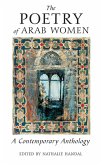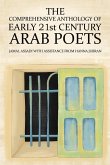Ait Djafer's "Wail of the Arab Beggars of the Casbah" is an underground classic on French oppression in Algeria. On October 20, 1949, in the city of Algiers, Khouni Ahmed, a tubercular beggar is walking along Rue Franklin Roosevelt. He hasn't eaten. He's holding his little daughter, Yasmina, 9, by the hand. A truck approaches. Suddenly, he pushes the child at the wheels. As she doesn't die, he pushes her a second time. Prosecuted two years later in criminal court, Ahmed is declared insane and committed to an asylum. This horrific event inspired the 22 year-old student Ait Djafer to write this impassioned elegy for the girl as an outcry against the extreme conditions of poverty that could cause such a tragedy. Dedicated to "those who have never been hungry," "Wail of the Arab Beggars of the Casbah" was printed in a small pamphlet edition by the Democratic Union for a Free Algeria in 1951. Its circulation was largely local; but in 1954 Jean Paul Sartre published it in his Paris magazine, "Les Temps Modernes"; and in 1960, the year of Algerian independence from French colonial rule, it was published in book form by Pierre Jean Oswald Editions. Ismael Ait Djafer was born in 1929 in the Casbah of Algiers. At 17 he was already writing and drawing for newspapers and magazines. He spent various periods of his life in exile in France, Germany and Sweden. After the overthrow of Ben Bella in 1965, Djafer went into permanent exile in Paris, where he died in 1995. Jack Hirschman was born in New York City in 1933 and has lived since 1973 in San Francisco. He has published more than 25 translations of poetry from eight languages. Among his many volumes of poetry are "Lyripol," "The BottomLine,"" Front Lines" and "Endless Threshold."
Hinweis: Dieser Artikel kann nur an eine deutsche Lieferadresse ausgeliefert werden.
Hinweis: Dieser Artikel kann nur an eine deutsche Lieferadresse ausgeliefert werden.








